2017 saw the release of great smartphones like the Iphone X and Galaxy S8, as well as new players, like the intriguing Razer Phone.
Things don’t look set to slow down in 2018,
With the CES yearly trade show, we’ve seen multiple new swish looking mid-range phones hit the scene. Highlights include the Galaxy A8 from Samsung and Sony’s Xperia L2, Xperia XA2 and Xperia XA2 Ultra.
But even with a wave of new handsets set to hit the mix, it’s still worth considering one of 2017’s phones. Many have had their price discounted since launch and still have top end components that will easily serve your needs for the next year or two.
10. Xiaomi Mi Mix 2
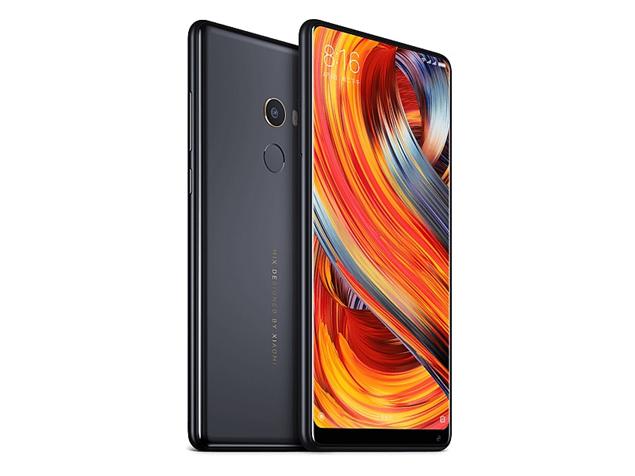
Key Specifications:
A massive 5.99-inch 1080p display, so it’s a good thing those bezels are razor thin, otherwise you’ll have a gargantuan phablet in your hands. While the screen isn’t as high resolution as some rivals, it’s still plenty crisp and sharp.
Inside is a Qualcomm Snapdragon 835 and 6GB of RAM, so you’re getting flagship specifications and performance for a lot less money, too. There’s a 12-megapixel camera round back complete with 4-axis optical image stabilisation.
Battery life is great thanks to a large 3400mAh cell and there’s Quick Charge 3.0 for topping it up quickly, too. For the money, the Xiaomi Mi Mix 2 is incredibly good value.
9. OnePlus 5T
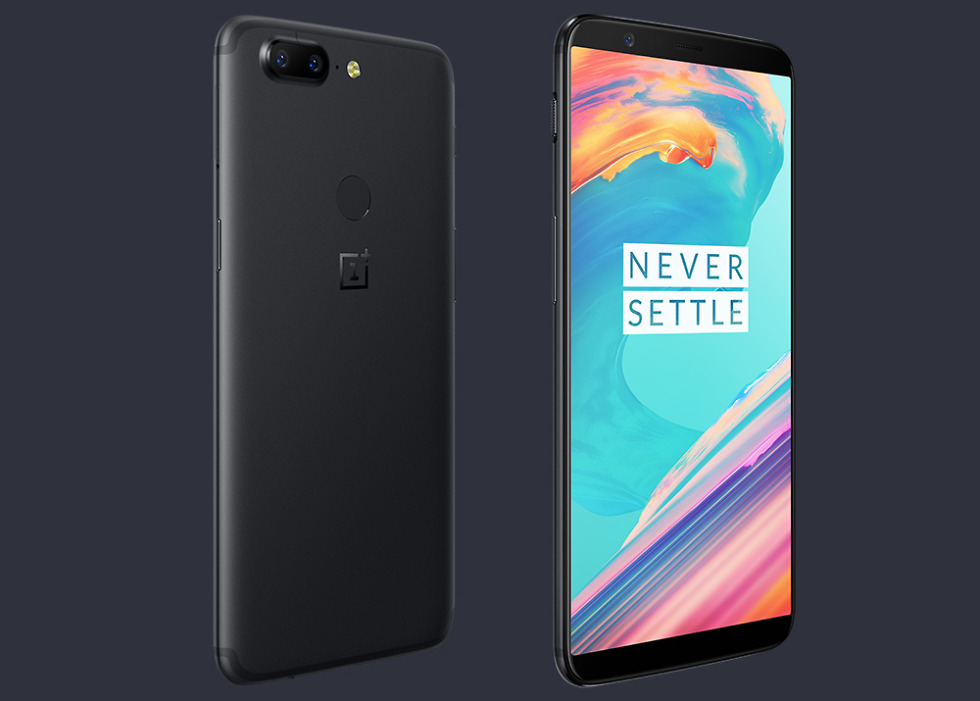
Key Specifications:
Our favourite OnePlus feature was Dash Charge, and it’s back again here – although with no new additions. Still, being able to charge the phone in an hour is very impressive.
The dual-camera setup, which uses both a 16- and 20-megapixel camera, works well but can’t match pricier devices from Apple and LG.
8. Moto G5 2017
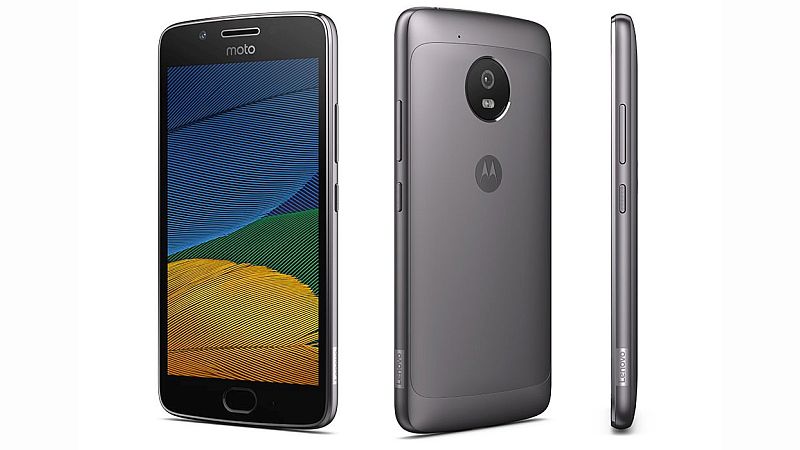
Key Specifications:
The handset fixes many of the flaws of Motorola’s Moto G4, reducing the screen size from 5.5 inches to 5 inches, thus making it significantly more comfortable to hold.
The design has also seen some changes, with an aluminium back being one of the most notable. The fingerprint scanner has been improved compared to the Moto G4’s ugly scanner. As before, there’s 16GB of storage as standard with a microSD slot if you find this isn’t sufficient space. The removable battery also makes a return.
The camera remains 13 megapixels and is still surprisingly good for the money. The underlying operating system has been updated to Android 7.0 Nougat, making everything feel fresh and up to date. Simply put, this is one of the best phones you can get for under £200.
7. LG V30

Key Specifications:
First to catch your eye will be the 18:9 display. It’s bright and sharp, but LG’s OLED still needs work.
Inside you’ll find a Snapdragon 835 CPU, 4GB of RAM and 64GB internal storage. There’s a microSD slot too. The 3300mAh battery will get you through the day – although not much beyond that – and the dual-lens camera is great in varying conditions.
The V30 is water-resistant too, takes fantastic video and is one of the most fully featured Android phones we tested in 2017.
6. Razer Phone
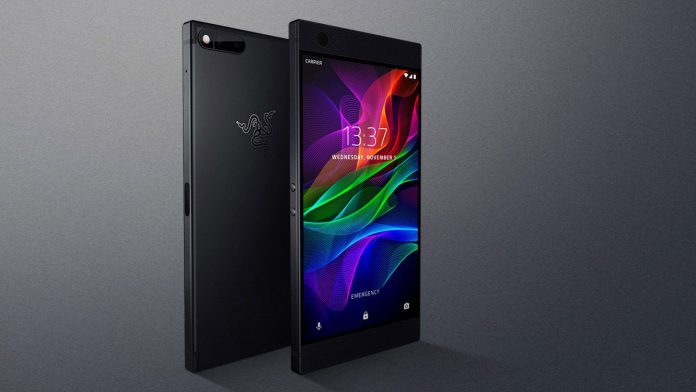
Key Specifications:
The imaginatively named Razer Phone is the ultimate gaming handset, and features a number of innovations that make it one of the most interesting smartphones to arrive in 2017.
Highlights include a variable refresh rate for a screen that’s razor-sharp (pun very much intended) and ultra-smooth; an über-chill cooling system that turns the metal chassis into a heatsink; and the best speakers we’ve ever heard on a smartphone.
Add to this its super-powerful Qualcomm Snapdragon 830 CPU, and – quite frankly – ridiculous 8GB of memory and semi-affordable (for the specs) £699 price tag, and the Razer Phone easily earns its place in our guide to the best smartphones.
The only slight compromise you’ll find is its rear camera, which offers lacklustre-at-best performance compared to other flagships.
5. Google Pixel 2 XL

Key features:
There’s a fast Snapdragon 835 CPU keeping things ticking over, 4GB of RAM and 64GB of internal storage. It’s now water-resistant, has squeezy sides – just like the HTC U11 – and stereo-speakers too.
Our only dislike is the display: the LG OLED is a bit muddy and suffers poor viewing angles. Still, for a clean Android experience this is the best choice.
If you prefer a smaller phone then opt for the 5-inch Google Pixel 2. This is almost identical to the XL, but fits in your hand and pocket a little more easily, and is also significantly cheaper.
4. Samsung Galaxy Note 8

KeySpecifications:
The Samsung Galaxy Note 8 has twin 12-megapixel cameras on the back, both with OIS, and a stunning quad-HD+ HDR AMOLED 6.3-inch display. It’s big, but the minimal bezel helps.
It also comes with the S-Pen is too. The iconic stylus slots into the bottom and is as responsive as ever. It’s a step up from the Galaxy S8 in almost every respect, including price.
3. Samsung Galaxy S8

Key Specifications:
The display ticks all the right boxes in terms of hardware, too. As well as being super-sharp, the screen is HDR-ready. While this might not mean much right now, in the future it will enable you to watch high dynamic range content from Amazon and Netflix – a huge draw for those who like to watch shows or movies on their phone.
Powered by a super-speedy Samsung Exynos 8895 CPU and 4GB of RAM, the Galaxy S8 is one of the fastest phones on the market, breezing through all manner of tasks from web browsing to intensive 3D gaming.
The rear camera is also the best we’ve encountered on a smartphone. Featuring a 12-megapixel, f/1.7 aperture and Dual Pixel sensor, the unit here is great for chronicling everything from holiday snaps in the sun to fun nights out in dimly lit bars and clubs.
Although we’re not convinced that the phone’s Bixby personal assistant offers any real advantage over Google’s own Assistant, the appearance of Android Nougat is another welcome addition that makes the S8 a perfect all-rounder.
The only downside is that, with pricing starting at £689, the Galaxy S8 is expensive. If you want a bigger version then try the Galaxy S8 Plus. This is almost identical in features but has a 6.2-inch screen.
2. Iphone X

Key Specifications:
It’s great to see a new iPhone with a design that hasn’t been plucked from a previous model; the tenth-anniversary iPhone is a gorgeous piece of engineering.
The aluminium sides have been switched for stainless steel, and that huge bezel around the screen has been ditched. The OLED Super Retina Display now stretches nearly edge-to-edge, and its curve is only interrupted by the infamous ‘notch’.
This ‘notch’ houses all the sensors needed for Face ID, along with the front-firing speaker. Face ID replaces the Touch ID sensor, since thee iPhone X has no home-button, and it works excellently in the majority of situations.
Outside of the design, many of the iPhone X’s components are the same as the iPhone 8 Plus. There’s an A11 Bionic chip and 3GB of RAM running the show, plus a choice of either 64 or 128GB storage.
The camera is similar to the 8 Plus too, but it has a wider f/2.4 aperture and OIS on the telephoto 12-megapixel camera. You can also use the Face ID camera to capture portrait mode selfies – but they’re quite disappointing.
This is the most expensive iPhone yet, but it feels almost worth it. The display if stunning, camera excellent, and it looks fantastic.
1. Huawei Mate 10 Pro
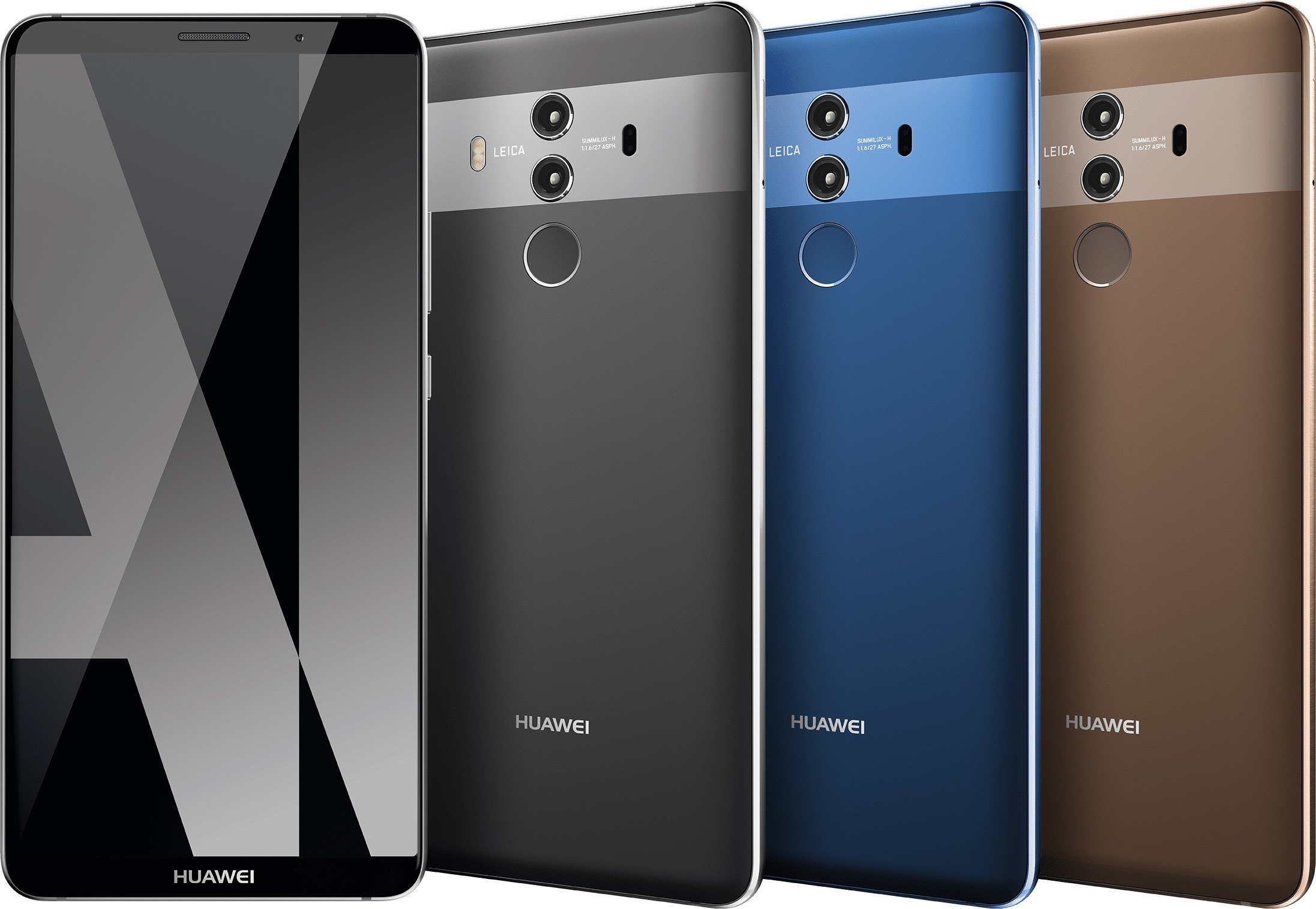
Key Specifications:
The Mate Pro 10 isn’t just pretty on the outside. Under its sleek, mixed metal and glass frame you’ll find some of the best hardware on the market. Highlights include an HDR-ready FHD+ OLED screen – one of the best seen this year –plus a sizeable 4000mAh battery that easily lasts one, if not two, days off a single charge.
Add to this its use of Google’s latest Android Oreo OS and the Mate 10 Pro justifiably earns its place with the big players.
The only slight downside is that the phone still runs Huawei’s EMUI skin, which adds a load of unwanted bloatware and duplicate apps.
Things don’t look set to slow down in 2018,
With the CES yearly trade show, we’ve seen multiple new swish looking mid-range phones hit the scene. Highlights include the Galaxy A8 from Samsung and Sony’s Xperia L2, Xperia XA2 and Xperia XA2 Ultra.
But even with a wave of new handsets set to hit the mix, it’s still worth considering one of 2017’s phones. Many have had their price discounted since launch and still have top end components that will easily serve your needs for the next year or two.
10. Xiaomi Mi Mix 2

Key Specifications:
- 5.99-inch 1080p display
- Qualcomm Snapdragon 835, 6GB RAM
- 64GB, 3400mAh battery
- Review price: £440
A massive 5.99-inch 1080p display, so it’s a good thing those bezels are razor thin, otherwise you’ll have a gargantuan phablet in your hands. While the screen isn’t as high resolution as some rivals, it’s still plenty crisp and sharp.
Inside is a Qualcomm Snapdragon 835 and 6GB of RAM, so you’re getting flagship specifications and performance for a lot less money, too. There’s a 12-megapixel camera round back complete with 4-axis optical image stabilisation.
Battery life is great thanks to a large 3400mAh cell and there’s Quick Charge 3.0 for topping it up quickly, too. For the money, the Xiaomi Mi Mix 2 is incredibly good value.
9. OnePlus 5T

Key Specifications:
- 6-inch Full-HD display
- 6 or 8GB RAM, Snapdragon 835
- 64 or 128GB storage, no microSD
- 16 + 20-megapixel camera; 16-megapixel selfie camera
- Review price: £449
Our favourite OnePlus feature was Dash Charge, and it’s back again here – although with no new additions. Still, being able to charge the phone in an hour is very impressive.
The dual-camera setup, which uses both a 16- and 20-megapixel camera, works well but can’t match pricier devices from Apple and LG.
8. Moto G5 2017

Key Specifications:
- 5-inch 1080p display
- 13-megapixel camera
- microSD card slot
- Android 7.0
- Review price: £169
The handset fixes many of the flaws of Motorola’s Moto G4, reducing the screen size from 5.5 inches to 5 inches, thus making it significantly more comfortable to hold.
The design has also seen some changes, with an aluminium back being one of the most notable. The fingerprint scanner has been improved compared to the Moto G4’s ugly scanner. As before, there’s 16GB of storage as standard with a microSD slot if you find this isn’t sufficient space. The removable battery also makes a return.
The camera remains 13 megapixels and is still surprisingly good for the money. The underlying operating system has been updated to Android 7.0 Nougat, making everything feel fresh and up to date. Simply put, this is one of the best phones you can get for under £200.
7. LG V30

Key Specifications:
- 6-inch quad-HD OLED screen
- Snapdragon 835 processor and 4GB RAM
- 64GB, 3300mAh
- Review price: £799
First to catch your eye will be the 18:9 display. It’s bright and sharp, but LG’s OLED still needs work.
Inside you’ll find a Snapdragon 835 CPU, 4GB of RAM and 64GB internal storage. There’s a microSD slot too. The 3300mAh battery will get you through the day – although not much beyond that – and the dual-lens camera is great in varying conditions.
The V30 is water-resistant too, takes fantastic video and is one of the most fully featured Android phones we tested in 2017.
6. Razer Phone

Key Specifications:
- 5.72-inch, 1440 x 2560, LCD
- 12-megapixel dual-lens rear camera
- USB-C
- 4000mAh battery
- Review price: £699.99
The imaginatively named Razer Phone is the ultimate gaming handset, and features a number of innovations that make it one of the most interesting smartphones to arrive in 2017.
Highlights include a variable refresh rate for a screen that’s razor-sharp (pun very much intended) and ultra-smooth; an über-chill cooling system that turns the metal chassis into a heatsink; and the best speakers we’ve ever heard on a smartphone.
Add to this its super-powerful Qualcomm Snapdragon 830 CPU, and – quite frankly – ridiculous 8GB of memory and semi-affordable (for the specs) £699 price tag, and the Razer Phone easily earns its place in our guide to the best smartphones.
The only slight compromise you’ll find is its rear camera, which offers lacklustre-at-best performance compared to other flagships.
5. Google Pixel 2 XL
Key features:
- 6-inch quad-HD display
- Snapdragon 835, 4GB RAM
- Google Assistant, Active Edge, Google Lens
- 12-megapixel camera
- USB-C for audio
- Review price: £639
There’s a fast Snapdragon 835 CPU keeping things ticking over, 4GB of RAM and 64GB of internal storage. It’s now water-resistant, has squeezy sides – just like the HTC U11 – and stereo-speakers too.
Our only dislike is the display: the LG OLED is a bit muddy and suffers poor viewing angles. Still, for a clean Android experience this is the best choice.
If you prefer a smaller phone then opt for the 5-inch Google Pixel 2. This is almost identical to the XL, but fits in your hand and pocket a little more easily, and is also significantly cheaper.
4. Samsung Galaxy Note 8

KeySpecifications:
- 6.3-inch quad-HD display
- IP68 water-resistance
- 2 x 12-megapixel camera
- USB-C
- S-Pen
- Review price: £870
The Samsung Galaxy Note 8 has twin 12-megapixel cameras on the back, both with OIS, and a stunning quad-HD+ HDR AMOLED 6.3-inch display. It’s big, but the minimal bezel helps.
It also comes with the S-Pen is too. The iconic stylus slots into the bottom and is as responsive as ever. It’s a step up from the Galaxy S8 in almost every respect, including price.
3. Samsung Galaxy S8

Key Specifications:
- 5.8-inch, AMOLED, quad-HD Infinity Display
- Samsung Exynos 8895 CPU and 4GB of RAM
- 64GB, 3000mAh battery
- Review price: £689
The display ticks all the right boxes in terms of hardware, too. As well as being super-sharp, the screen is HDR-ready. While this might not mean much right now, in the future it will enable you to watch high dynamic range content from Amazon and Netflix – a huge draw for those who like to watch shows or movies on their phone.
Powered by a super-speedy Samsung Exynos 8895 CPU and 4GB of RAM, the Galaxy S8 is one of the fastest phones on the market, breezing through all manner of tasks from web browsing to intensive 3D gaming.
The rear camera is also the best we’ve encountered on a smartphone. Featuring a 12-megapixel, f/1.7 aperture and Dual Pixel sensor, the unit here is great for chronicling everything from holiday snaps in the sun to fun nights out in dimly lit bars and clubs.
Although we’re not convinced that the phone’s Bixby personal assistant offers any real advantage over Google’s own Assistant, the appearance of Android Nougat is another welcome addition that makes the S8 a perfect all-rounder.
The only downside is that, with pricing starting at £689, the Galaxy S8 is expensive. If you want a bigger version then try the Galaxy S8 Plus. This is almost identical in features but has a 6.2-inch screen.
2. Iphone X
Key Specifications:
- 5.8-inch OLED display
- iOS 11
- 2 x 12-megapixel cameras
- Face ID
- Review price: £999
It’s great to see a new iPhone with a design that hasn’t been plucked from a previous model; the tenth-anniversary iPhone is a gorgeous piece of engineering.
The aluminium sides have been switched for stainless steel, and that huge bezel around the screen has been ditched. The OLED Super Retina Display now stretches nearly edge-to-edge, and its curve is only interrupted by the infamous ‘notch’.
This ‘notch’ houses all the sensors needed for Face ID, along with the front-firing speaker. Face ID replaces the Touch ID sensor, since thee iPhone X has no home-button, and it works excellently in the majority of situations.
Outside of the design, many of the iPhone X’s components are the same as the iPhone 8 Plus. There’s an A11 Bionic chip and 3GB of RAM running the show, plus a choice of either 64 or 128GB storage.
The camera is similar to the 8 Plus too, but it has a wider f/2.4 aperture and OIS on the telephoto 12-megapixel camera. You can also use the Face ID camera to capture portrait mode selfies – but they’re quite disappointing.
This is the most expensive iPhone yet, but it feels almost worth it. The display if stunning, camera excellent, and it looks fantastic.
1. Huawei Mate 10 Pro

Key Specifications:
- 6-inch HD+ HDR 10 OLED display
- 12-megapixel f/1.6 colour camera w/ OIS
- USB-C
- 4000mAh battery
- Review price: £699.99
The Mate Pro 10 isn’t just pretty on the outside. Under its sleek, mixed metal and glass frame you’ll find some of the best hardware on the market. Highlights include an HDR-ready FHD+ OLED screen – one of the best seen this year –plus a sizeable 4000mAh battery that easily lasts one, if not two, days off a single charge.
Add to this its use of Google’s latest Android Oreo OS and the Mate 10 Pro justifiably earns its place with the big players.
The only slight downside is that the phone still runs Huawei’s EMUI skin, which adds a load of unwanted bloatware and duplicate apps.
Comments
Post a Comment